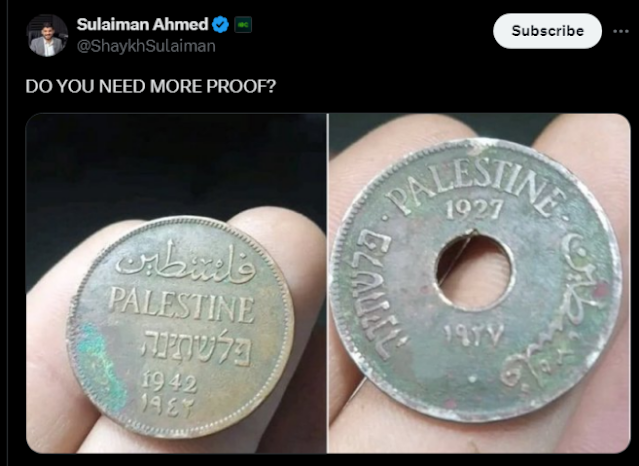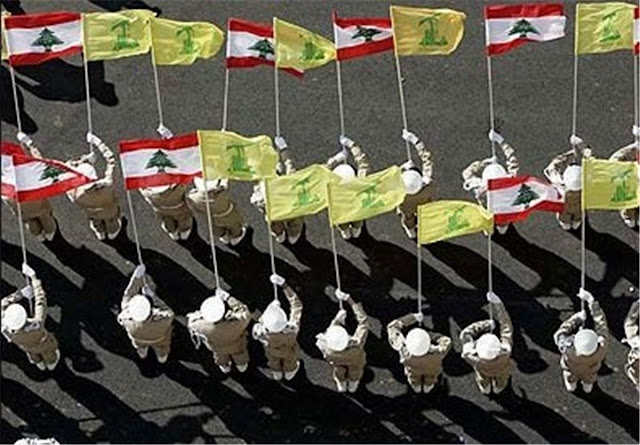Israel’s best strategic position in decades
Likewise, on Israel’s northern border, the threat of Hezbollah’s rocket arsenal prevented Israel from taking offensive action. The thought of another conflict with Hezbollah was enough to paralyze decision-makers, including senior IDF commanders, intelligence officials, and political leaders Benny Gantz and Yair Lapid. They were ready to throw in the towel and stop a war with Lebanon. But Netanyahu didn’t listen to those voices. In a series of daring, James Bond-like operations, Israel took out Hezbollah’s mid-level leadership with precision-targeted attacks that eliminated its command structure.Alan Dershowitz: President Biden Can Still Save the World in His Remaining Time in Office
These strikes were a turning point in the war against Hezbollah, whose long-range rocket attacks are also being disrupted. And as it did in Gaza, the IDF is systematically dismantling Hezbollah’s vast tunnel network and confiscating weapons the terror group stored to use in a massive infiltration, which would have been worse than the Oct. 7 attack.
In another display of daring, Netanyahu took out Hezbollah leader Hassan Nasrallah in the heart of Beirut. He did so without informing the Biden administration and, in true Israeli fashion, aimed to ask for forgiveness rather than permission. (And for the record, rather than forgiveness, the United States owes Israel its thanks for eliminating an evil dictator with American blood on his hands.)
Despite the pain and tragedy of Oct. 7, Israel is in a far better situation strategically than it has been at any time since its founding in 1948. Sadly, it took the horrors of that fateful day to awaken the Jewish spirit and finally do what was needed to defend ourselves. Today, we are a stronger, better-prepared nation, ready to face our enemies.
Netanyahu’s leadership has been instrumental in achieving this reality. He has demonstrated that Israel will not be bullied or dictated to when it comes to its survival. As the only freedom-loving country in the region, Israel is willing to take on Iran, the largest state sponsor of terror in the world, and destroy its capabilities, which threatens not just Israel but the entire region.
Israel is at the point where it can take the fight to its enemies. The threat of Hamas in Gaza is being neutralized, Hezbollah’s infrastructure is being dismantled and offensive strikes are also destroying terrorist strongholds in Judea and Samaria. Israel is no longer waiting for the next attack. Rather, it is taking the upper hand to prevent future attacks.
As we begin the new Jewish year, we begin it with hope. Israel is safer and stronger, having taken decisive action to ensure a more secure future, not just for itself but for the entire Middle East and the freedom-loving world. The pain, mourning and trauma of Oct. 7 continues, along with a stronger Israel that is shaping the future of the region and the world with a renewed sense of purpose.
"[I]n 1933 a French premier ought to have said (and if I had been the French premier I would have said it): 'The new Reich Chancellor is the man who wrote Mein Kampf, which says this and that. This man cannot be tolerated in our vicinity. Either he disappears or we march!' But they didn't do it. They left us alone and let us slip through the risky zone, and we were able to sail around all dangerous reefs. And when we were done, and well-armed, better than they, then they started the war!" — Joseph Goebbels, Germany's Minister of Public Enlightenment and Propaganda from 1933-1945.UNIFIL’s failure means it must leave or reform
Obama has been the "Chamberlain" in this 21st-century version of Great Britain's and France's appeasement of an evil and dangerous regime.
The Biden administration has extended Obama's destructive policy, resulting in an even stronger and more dangerous Iran. Under the Trump administration, Iran was considerably weakened economically and thus militarily. Now it is on the verge of acquiring a nuclear arsenal which will allow its proxies to operate under the protection of Iran's nuclear umbrella.
The other step that Biden could take would be to work with Israel on preventing Iran from developing a nuclear arsenal. Unfortunately, this cannot be achieved by more treaties or negotiations. As recent history shows, Iran will simply cheat, as it did after Obama's 2015 JCPOA "nuclear deal." The only way to prevent Iran from obtaining nuclear weapons is through a military attack against its nuclear facilities, many of which are very deep underground. This can be achieved through U.S.-Israeli military and intelligence cooperation.
Israel should not give up any military advantage in exchange for intangible promises. Just look at how Russia violated its commitment, in the 1994 Budapest Memorandum, to respect the territorial integrity of Ukraine in exchange for the latter giving up its nuclear weapons. Ukraine gave the weapons up; in 2014 and 2022, Russia invaded anyway.
Although the United States, even as far back as the Obama administration, has pledged to prevent Iran from developing a nuclear arsenal, there is no reason why Iran should believe that, considering US appeasement tactics under Democratic administrations.
So the only realistic alternative – the least bad among the series of not very good alternatives – is a joint military attack, as surgical as possible, on Iran's nearly-completed nuclear weapons program. To allow Iran to cross the threshold and acquire nuclear weapons would pose a catastrophic threat to world peace. Stopping Iran from having a nuclear arsenal would, on the other hand, be a great accomplishment and a lasting positive legacy for the Biden presidency.
The result of inaction will be a terrorist regime with a nuclear arsenal, followed by a global nuclear-arms race. The fault for such a dangerous outcome will lie squarely with the "Chamberlain" Democrats.
Hezbollah’s use of UNIFIL as a human shield not only endangers the peacekeeping force but also hampers Israel’s ability to defend itself from Hezbollah’s aggression. On Oct. 12, according to Shoshani, an IDF tank carrying wounded soldiers backed a few meters into a UNIFIL post because it was under fire and dealing with a mass-casualty event involving the evacuation of dozens of wounded soldiers.
“Again we were communicating with them. They [UNIFIL] were in their safe area. No UNIFIL people were in danger at the time of the event because of our communications with them,” he stressed. “Every time we operate in the area against Hezbollah, we give them [UNIFIL] a heads up to make sure they have a chance to get out of harm’s way or to go to the safe areas that they have in their posts.”
Israeli Defense Minister Yoav Gallant’s Oct. 13 visit to Israel’s northern border further underscores the severity of Hezbollah’s military buildup in Southern Lebanon, which was totally ignored by UNIFIL and absent from its annual reports.
Gallant toured IDF operations aimed at dismantling Hezbollah’s tunnels and weapon stockpiles, which included hundreds of RPGs, munitions and anti-tank missiles. Hezbollah has established extensive military infrastructure in Southern Lebanon, including sophisticated missile-launching systems capable of targeting Israeli civilians with pinpoint accuracy. Don’t expect to find any of these weapons or plans for a mass-murder invasion of northern Israel in UNIFIL’s reports.
Gallant emphasized the IDF’s mission to dismantle these immediate threats, noting that Hezbollah launchers, located in civilian areas, could strike Israeli homes in seconds. Yet, UNIFIL has consistently overlooked these violations.
UNIFIL’s inability to prevent Hezbollah from rearming and operating freely in southern Lebanon has rendered its mission a failure. As such, its two logical choices should be to either leave the area, where it is doing more harm than good, or to seriously reform. The status quo, in which an international community convinces itself that its faux peacekeepers are contributing to stability in Lebanon, should not continue, as it has benefited Hezbollah almost exclusively.
The mounting evidence of Hezbollah’s exploitation of UNIFIL positions, combined with the force’s inability to report or monitor these violations, demonstrates that UNIFIL’s presence is not only ineffective but dangerous.
The situation calls for immediate decisions. UNIFIL must either adapt to the current realities on the ground or withdraw entirely from Southern Lebanon. A reformed UNIFIL, as suggested by the Alma Center in July, would involve a shift from its current model of a large force of 10,000 personnel to a more agile, reporting-driven approach. This would involve developing capabilities for Access, Reporting and Communication (ARC), allowing UNIFIL to monitor and report violations in real time, rather than serving as a static and vulnerable presence.
However, any discussion of dismantling Hezbollah’s military infrastructure will likely require international supervision beyond UNIFIL, which has proven unwilling to confront Hezbollah directly.
Bradley Bowman, senior director of the Center on Military and Political Power at the Washington D.C.-based Foundation for Defense of Democracies and a former U.S. Army officer who taught at West Point, stated on a webinar on Oct. 3, “What’s going to happen when the IDF leaves? Well of course we know what’s going to happen: Hezbollah is going to move back in, and you can’t count on the UNFIL forces to do anything of course, if past is prologue. So that means Israel will have to have the means, the weapons, and the political permission, if you will, to periodically go back into Lebanon as necessary to take things out. And that’s where the United States comes in.”



.png)






%20Eitan%20Fischberger%20on%20X_%20_The%20author%20of%20the%20NYT%20piece%20weighs%20in,_%20-%20x.com.png)




































